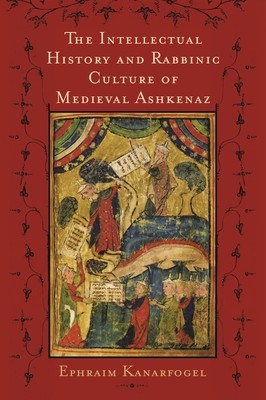
- We will send in 10–14 business days.
- Author: Ephraim Kanarfogel
- Publisher: Wayne State University Press
- ISBN-10: 081433024X
- ISBN-13: 9780814330241
- Format: 16 x 23.1 x 4.3 cm, kieti viršeliai
- Language: English
- SAVE -10% with code: EXTRA
The Intellectual History and Rabbinic Culture of Medieval Ashkenaz (e-book) (used book) | bookbook.eu
Reviews
Description
In The Intellectual History and Rabbinic Culture of Medieval Ashkenaz, author Ephraim Kanarfogel challenges the dominant perception that medieval Ashkenazic rabbinic scholarship was lacking in intellectualism or broad scholarly interests. While cultural interaction between Jews and Christians in western Europe was less than that of Sephardic Jews, Kanarfogel's study shows that the intellectual interests of Ashkenazic rabbinic figures were much broader than Talmudic studies alone.
Kanarfogel begins by highlighting several factors that have contributed to relatively narrow perceptions of Ashkenazic rabbinic culture and argues that the Tosafists, and Ashkenazic rabbinic scholarship more generally, advocated a wide definition of the truths that could be discovered through Torah study. He explores differences in talmudic and halakhic studies between the Tosafist centers of northern France and Germany, delves into aspects of biblical interpretation in each region, and identifies important Tosafists and rabbinic figures. Kanarfogel also examines the composition of liturgical poetry (piyyut) by Tosafists, interest in forms of (white) magic and mysticism on the part of a number of northern French Tosafists, and a spectrum of views on the question of anthropomorphism and messianism.
Overall, Kanarfogel demonstrates that the approach taken by Tosafists was broader, more open, and more multi-disciplinary than previously considered. Medieval and Jewish history scholars will appreciate Kanarfogel's volume, which is the culmination of several decades of research on the subject.
EXTRA 10 % discount with code: EXTRA
The promotion ends in 22d.15:33:40
The discount code is valid when purchasing from 10 €. Discounts do not stack.
- Author: Ephraim Kanarfogel
- Publisher: Wayne State University Press
- ISBN-10: 081433024X
- ISBN-13: 9780814330241
- Format: 16 x 23.1 x 4.3 cm, kieti viršeliai
- Language: English English
In The Intellectual History and Rabbinic Culture of Medieval Ashkenaz, author Ephraim Kanarfogel challenges the dominant perception that medieval Ashkenazic rabbinic scholarship was lacking in intellectualism or broad scholarly interests. While cultural interaction between Jews and Christians in western Europe was less than that of Sephardic Jews, Kanarfogel's study shows that the intellectual interests of Ashkenazic rabbinic figures were much broader than Talmudic studies alone.
Kanarfogel begins by highlighting several factors that have contributed to relatively narrow perceptions of Ashkenazic rabbinic culture and argues that the Tosafists, and Ashkenazic rabbinic scholarship more generally, advocated a wide definition of the truths that could be discovered through Torah study. He explores differences in talmudic and halakhic studies between the Tosafist centers of northern France and Germany, delves into aspects of biblical interpretation in each region, and identifies important Tosafists and rabbinic figures. Kanarfogel also examines the composition of liturgical poetry (piyyut) by Tosafists, interest in forms of (white) magic and mysticism on the part of a number of northern French Tosafists, and a spectrum of views on the question of anthropomorphism and messianism.
Overall, Kanarfogel demonstrates that the approach taken by Tosafists was broader, more open, and more multi-disciplinary than previously considered. Medieval and Jewish history scholars will appreciate Kanarfogel's volume, which is the culmination of several decades of research on the subject.


Reviews